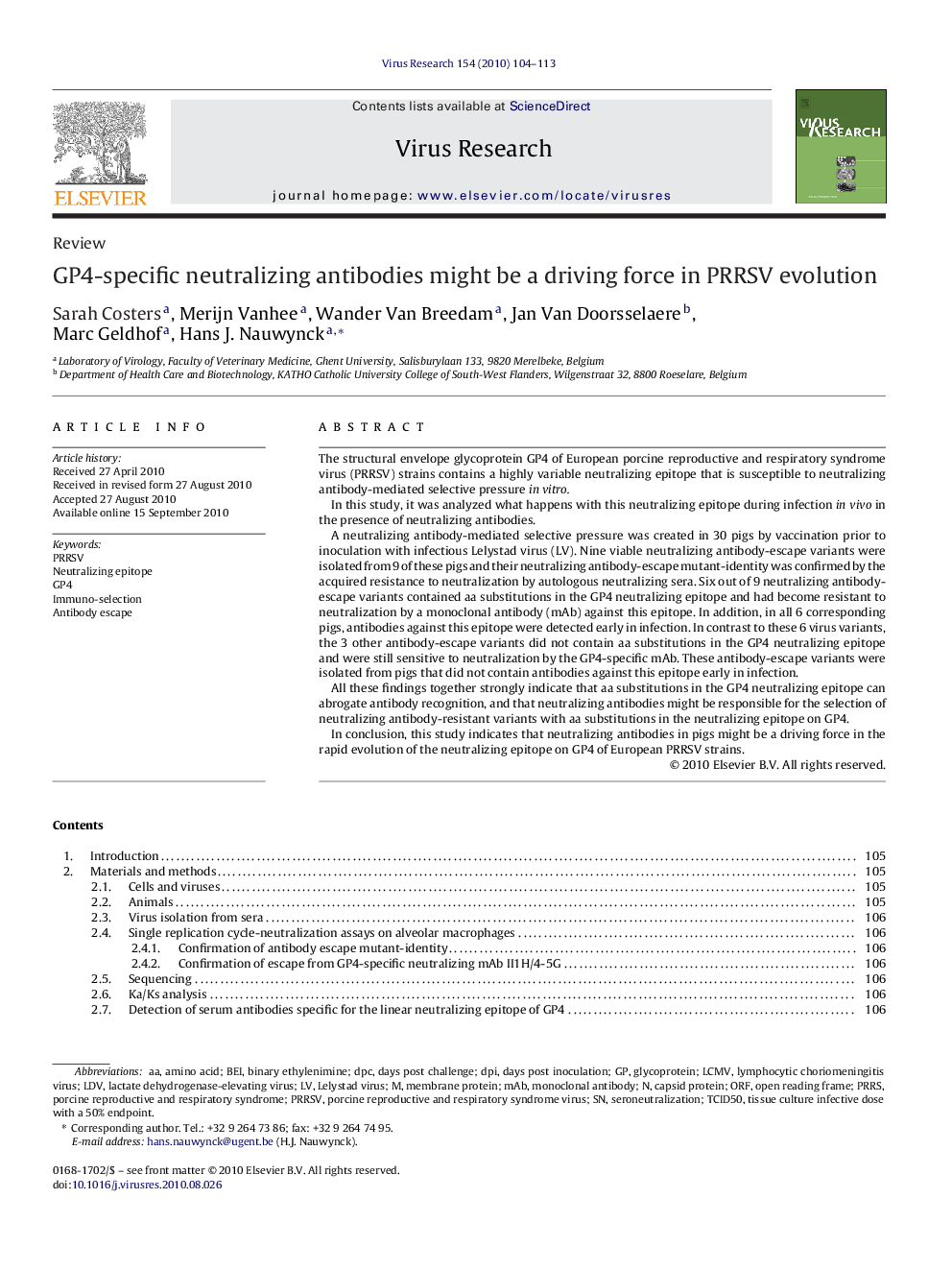| Article ID | Journal | Published Year | Pages | File Type |
|---|---|---|---|---|
| 3429125 | Virus Research | 2010 | 10 Pages |
The structural envelope glycoprotein GP4 of European porcine reproductive and respiratory syndrome virus (PRRSV) strains contains a highly variable neutralizing epitope that is susceptible to neutralizing antibody-mediated selective pressure in vitro.In this study, it was analyzed what happens with this neutralizing epitope during infection in vivo in the presence of neutralizing antibodies.A neutralizing antibody-mediated selective pressure was created in 30 pigs by vaccination prior to inoculation with infectious Lelystad virus (LV). Nine viable neutralizing antibody-escape variants were isolated from 9 of these pigs and their neutralizing antibody-escape mutant-identity was confirmed by the acquired resistance to neutralization by autologous neutralizing sera. Six out of 9 neutralizing antibody-escape variants contained aa substitutions in the GP4 neutralizing epitope and had become resistant to neutralization by a monoclonal antibody (mAb) against this epitope. In addition, in all 6 corresponding pigs, antibodies against this epitope were detected early in infection. In contrast to these 6 virus variants, the 3 other antibody-escape variants did not contain aa substitutions in the GP4 neutralizing epitope and were still sensitive to neutralization by the GP4-specific mAb. These antibody-escape variants were isolated from pigs that did not contain antibodies against this epitope early in infection.All these findings together strongly indicate that aa substitutions in the GP4 neutralizing epitope can abrogate antibody recognition, and that neutralizing antibodies might be responsible for the selection of neutralizing antibody-resistant variants with aa substitutions in the neutralizing epitope on GP4.In conclusion, this study indicates that neutralizing antibodies in pigs might be a driving force in the rapid evolution of the neutralizing epitope on GP4 of European PRRSV strains.
